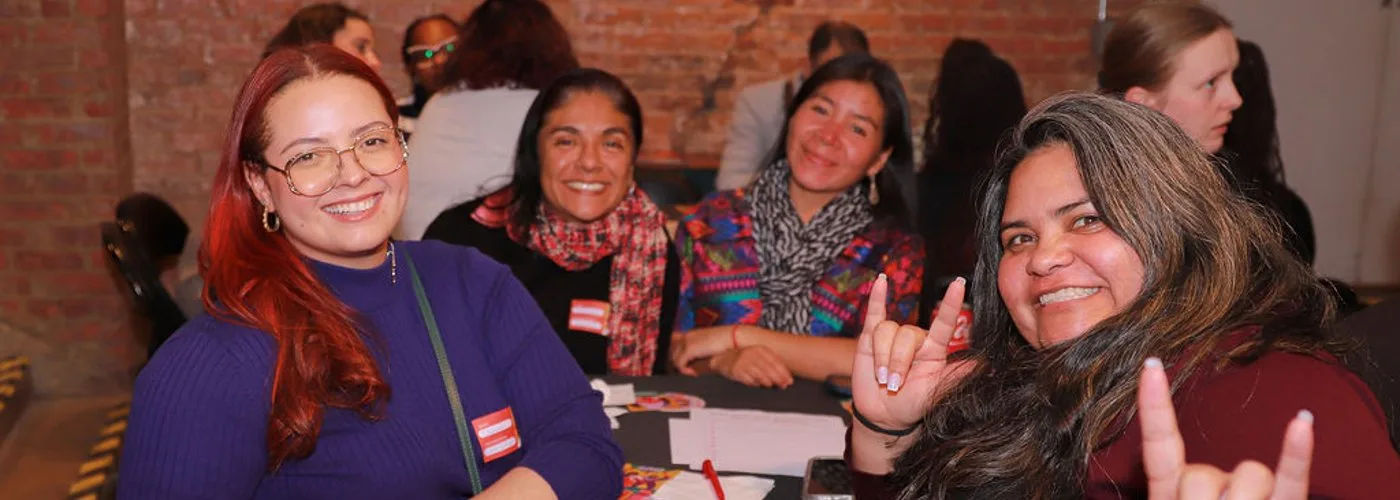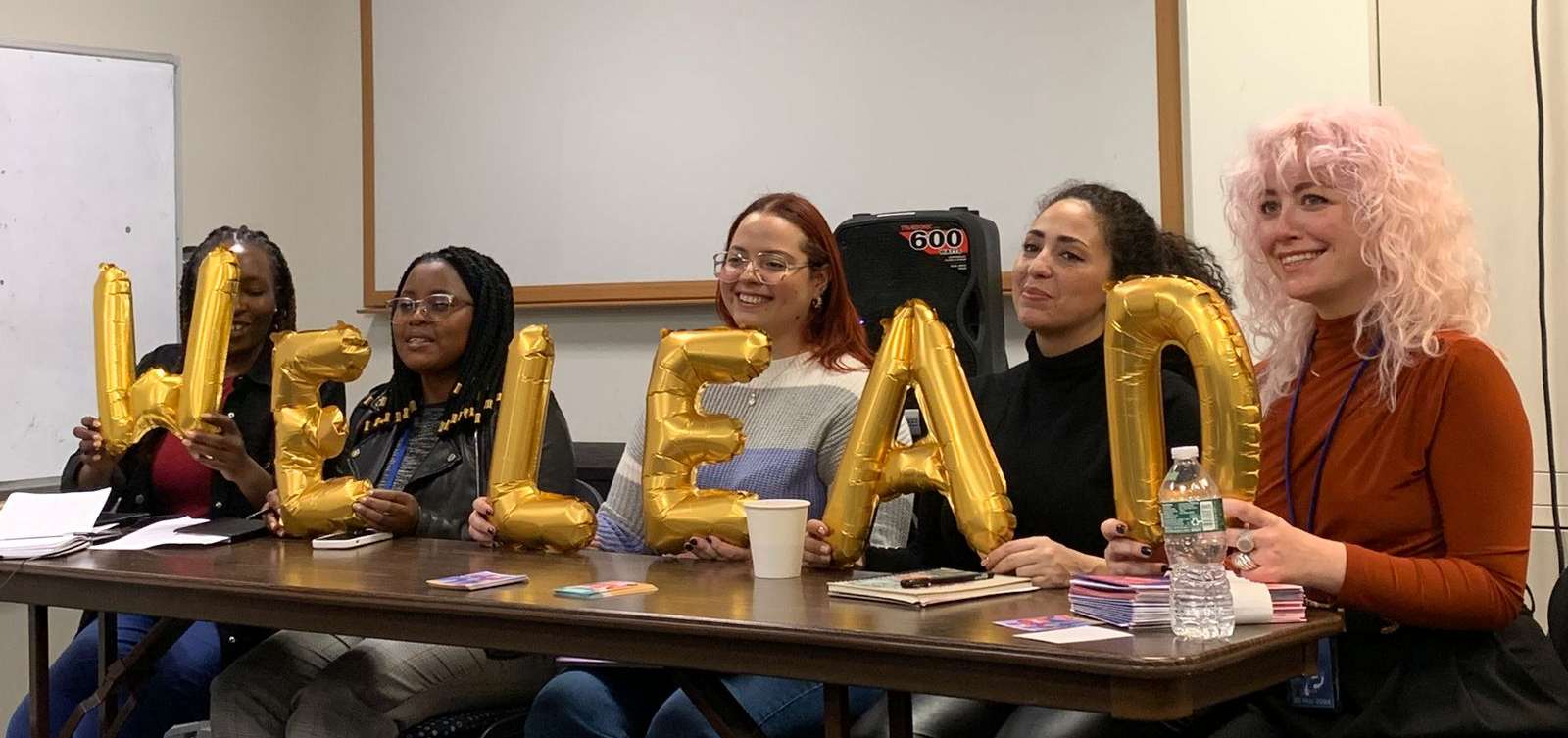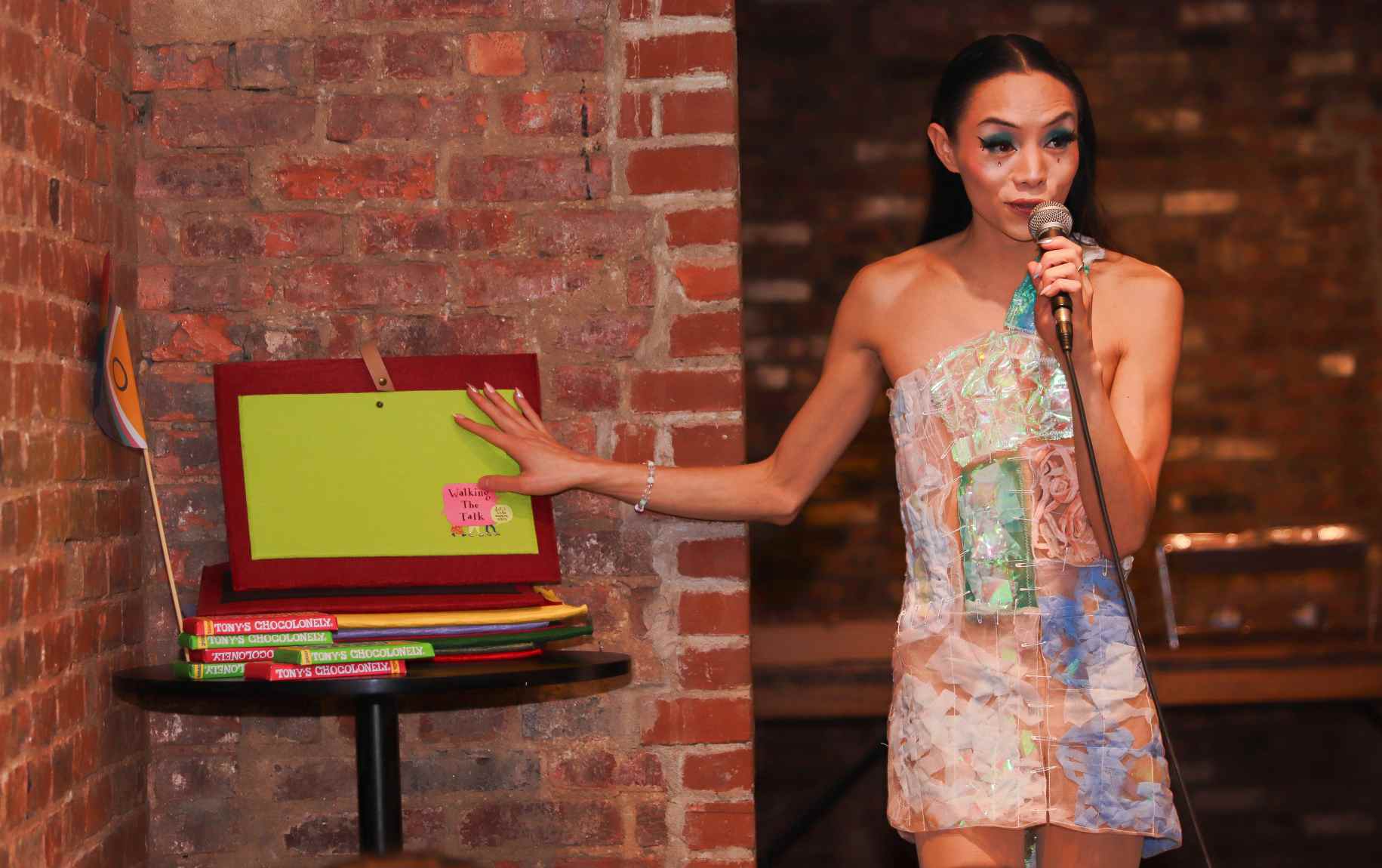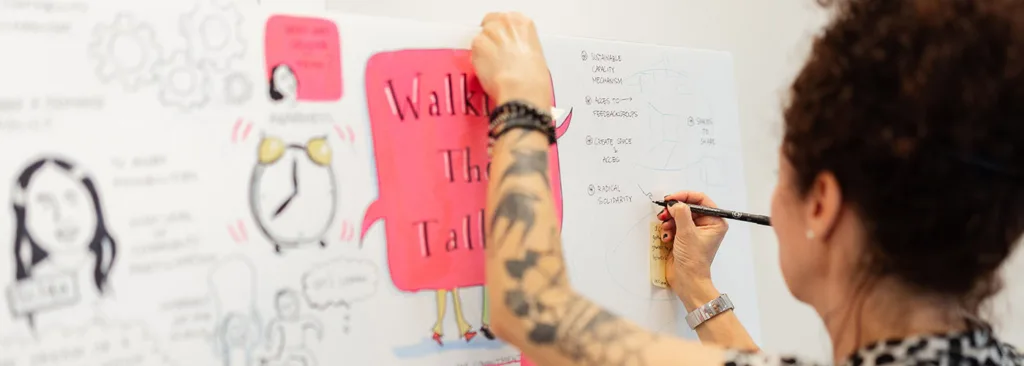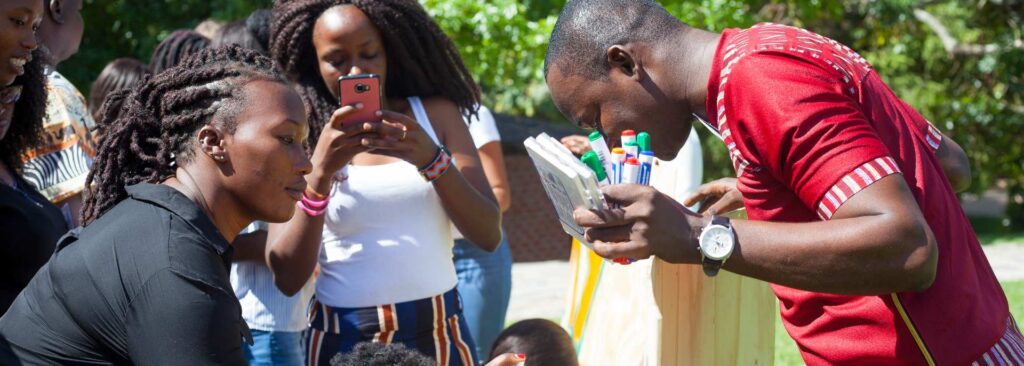By Jim Monkel (Walking the Talk) and Mickey Andeweg (We Lead), with contributions from Antonio Nilza Andre of MOVFEM
The biggest gathering of the United Nations on gender equality and women’s rights, the Commission on the Status of Women (CSW68), took place from March 11 to 22. Over 7,000 people from all over the world gathered in New York to discuss the 2024 priority theme: “Accelerating the achievement of gender equality and the empowerment of all women and girls by addressing poverty and strengthening institutions and financing with a gender perspective.”
This years’ negotiations were a nail biter. Towards the end, everyone was on the edge of their seats not knowing whether there would even be a resolution document. After a week of painstaking negotiations to reach consensus on how to achieve the theme, Nigeria almost blocked the adoption of the resolution document for reasons that weren’t made known. But Mexico and Cuba made a strong case for adopting the text, and the Dutch government, a strong proponent of feminist foreign policy, played a central role in this complex process as negotiations facilitator. Finally, in the packed conference room, the resolution document was adopted, followed by a long applause from the audience.
Linking the personal to the political
Hivos’ delegation was joined by 11 rightsholders from many different countries to advocate for economic justice and an end to women’s poverty worldwide. By linking the personal to the political, rightsholders shared stories about how gender policies directly influence the lives of young women and girls.
One of these rightsholders, Ngozi Nwosu-Juba, project director of Hivos’ partner Vision Spring Initiatives in Nigeria, also played a part. She was in the room during the final moments of the negotiations. After her government’s delegation spoke out against the text, she made her way to speak to the negotiator. “I said: please don’t do this. We need this outcome for women and girls,” she told us. Shortly afterwards the delegations of both Mexico and Cuba argued for the text, and Nigeria finally agreed.
Setting the agenda
Side events are organized to prioritize and advocate for the elements of each year’s CSW theme that should be included in the final document. Side events also give organizers the chance to shed light on lived experiences of rightsholders (as mentioned above), share expertise, and facilitate conversations between civil society and governments.
In that spirit, the We Lead program organized a side event called “Towards a Feminist Project for the Progressive Financing.” The aim was to promote progressive funding for sexual and reproductive health and rights (SRHR) by addressing the unique needs of women and girls in vulnerable positions, such as those with HIV or a disability, LBTIQ+ women, and those affected by displacement. During the session, the rightsholders spoke about the different contexts they work in and the challenges they face in accessing funding.
Stephanie Mondragón, an investigative journalist from Honduras, spoke about how new policies don’t always go hand-in-hand with changing reality. For example, after the ban on emergency contraceptives was lifted, it took over a year for it to come available. And still, the morning after pill is sold at a price that is often unaffordable for young women and girls.
And we’re seeing funding for SRHR shrink, while these challenges, thanks to growing political and social instability, are only getting worse. The event stressed that donors need to step up to the plate and offer support to feminist organizations with flexible and long-term funding, especially for women and girls’ SRHR.
When bingo meets policy
A more playful approach to engaging with policy makers was the Feminist Bingo our Walking the Talk program organized. This event gathered feminists from all walks of life for a fun but informative evening hosted by the New York-based drag artist Kiko Soirée. The game sparked lively discussions on gender equality finance, feminist pioneers, feminist foreign policy, and landmark events for the LGBTIQ+ community.
The work begins now
Looking at CSW68’s agreed conclusions for a final outcome document (to be published here), we were particularly happy to see conclusion 54. Its many provisions urge governments to: “Integrate a gender perspective into financing for development commitments”, “Implement gender-responsive economic and social policies”, “Expand a fiscal space for investments to end poverty for women and girls”, and “Engage and finance women’s organizations and collectives.”
So what’s next? The actual work always begins after the CSW. Since all member states commit to act on the agreed conclusions, civil society and activists can hold governments accountable when their policies and/or actions do not align with or fulfill the commitments.
We, at any rate, will not let up in pushing hard for increased flexible and long-term funding for feminist organizations, here and abroad. But we’re also extremely aware that, in addition to proper resources and representation, the root causes of injustice against women and LGBTIQ+ people must also be tackled head on. Hivos will continue working towards that goal with our partners to achieve more feminist, inclusive, and equitable societies – and foreign policies.
Want to read more about the negotiations and how to influence them? Read the blog post by Nadia van der Linde of WO=MEN.

